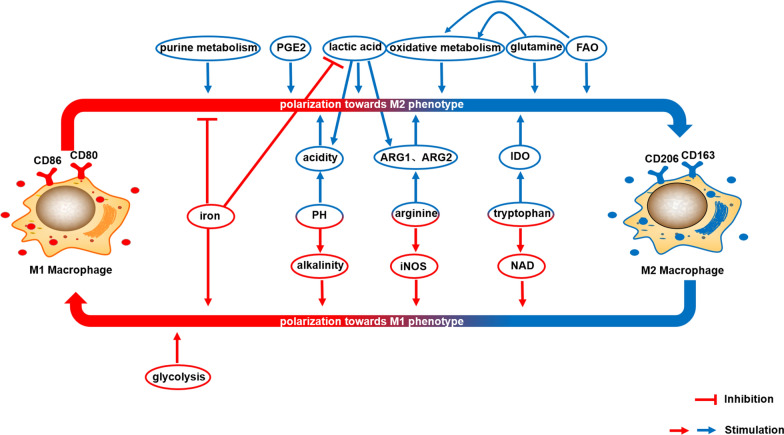Fig. 3.
Metabolic processes play a crucial role in regulating the polarization of macrophages. The phenotype of macrophages is intricately linked to their metabolic state. Various physiological pathways involved in metabolism have the ability to influence macrophage function and polarization. Notably, glycolysis, iNOS-associated arginine metabolism, NAD-associated tryptophan metabolism, alkaline environment, and iron uptake have been identified as inducers of M1-like polarization. Conversely, FAO, PGE2 production, oxidative metabolism, lactate production, glutamine-associated metabolism, ARG-associated arginine metabolism, IDO-associated tryptophan metabolism, purine metabolism, and acidic environment have been implicated in the promotion of M2-like polarization. These metabolic pathways and environmental factors contribute to the determination of macrophage polarization and subsequent functional outcomes

